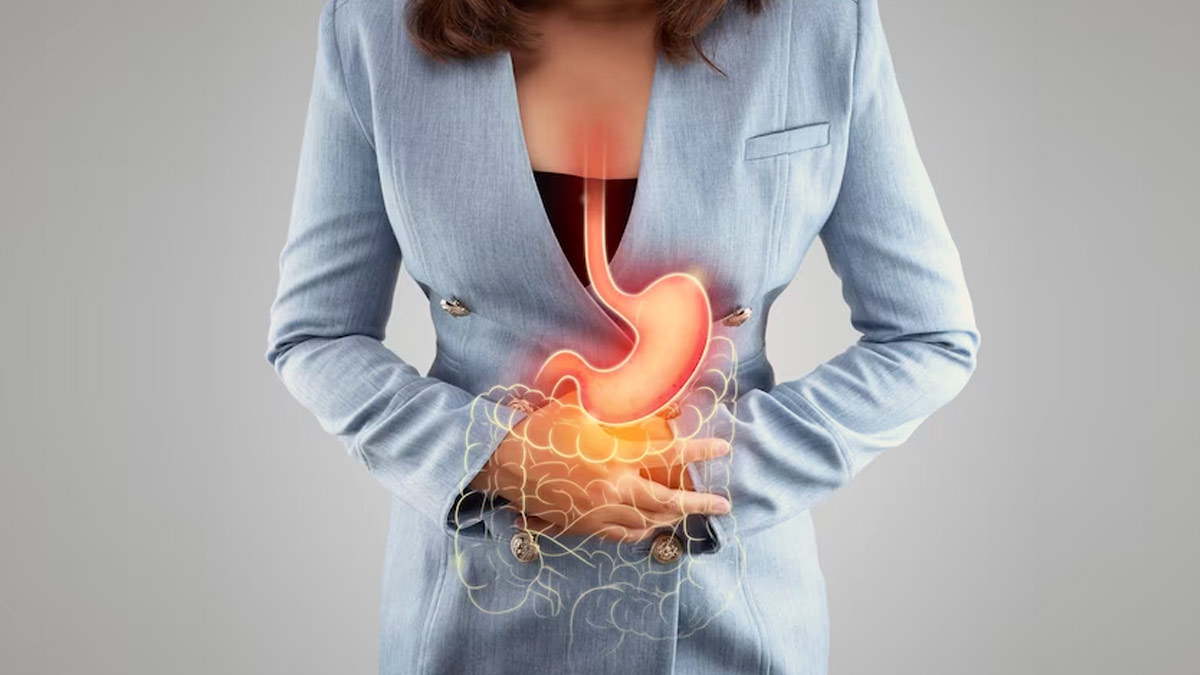
Gastrointestinal (GI) cancers, also known as digestive system cancers, can occur in any part of the digestive system, including the oesophagus, stomach, liver, gallbladder, bile pipe, pancreas, small intestine, colon, rectum and anal canal. The exact causes of GI cancers are not fully understood, but several factors that can increase the risk of developing these cancers have been identified. Dr Kiran Peddi, Consultant Medical Gastroenterologist, Yashoda Hospitals, Hyderabad, explains the causes, symptoms, and treatment of GI cancers in detail.
Table of Content:-
Causes Of Gastrointestinal Cancers
Genetics: Certain GI cancers, such as colon cancer, are more likely to form as a result of inherited genetic abnormalities.
Age: Though age is not an absolute risk factor, GI cancers are more common in patients above the age of 50 years.
Lifestyle Factors: Certain lifestyle factors can increase the risk of developing GI cancers, including a diet high in processed or red meats, alcohol consumption, smoking, and obesity.
Infections: Certain kinds of GI cancers are more likely to occur when certain viruses and bacteria infect, such as hepatitis B and C viruses (liver cancers) and Helicobacter pylori bacteria (stomach cancers).
Previous Medical Conditions: Previous medical conditions, such as inflammatory bowel disease (IBD) and gastroesophageal reflux disease (GERD) and Barrett's oesophagus, can increase the risk of developing GI cancers. These are particularly called pre-malignant conditions.
Environmental Factors: Exposure to environmental factors such as asbestos and chemicals used in certain industries can increase the risk of GI cancers.
Also Read: World Cancer Day 2023: Expert Explains Various Causes Of Cancer
Gastrointestinal Cancers & Their Symptoms
The symptoms can vary depending on the stage and type of cancer. Here are some GI cancers and their symptoms.
Oesophageal Cancer: The passage that transports food from the mouth to the stomach is where this cancer grows. Symptoms may include difficulty swallowing, weight loss, chest pain, and acid reflux.
Stomach Cancer: This cancer develops in the lining of the stomach. Symptoms may include stomach pain, nausea, vomiting, loss of appetite, weight loss, and blood in the stool.

Colorectal Cancer: This malignancy grows in the colon or rectum. Symptoms may include rectal bleeding, changes in bowel habits, abdominal pain, and weight loss.
Liver Cancer: This cancer develops in the liver. Symptoms may include abdominal pain, weight loss, jaundice, and swelling in the abdomen.
Pancreatic Cancer: This cancer develops in the pancreas. Symptoms may include abdominal pain, weight loss, jaundice, and nausea.
Gallbladder Cancer: This cancer develops in the gallbladder. Symptoms may include abdominal pain, jaundice, fever, and nausea.
Also Read: Surviving Cancer: Actress Chhavi Mittal’s Winning Battle with Breast Cancer
Treatment Of Gastrointestinal Cancers
The stage and type of cancer, the patient's age and general health, and their preferences are all variables that affect how GI cancers are treated. Here are a few typical GI cancer therapy choices.
Surgery: Surgery is often the primary treatment for GI cancers. It involves removing the tumour and any affected tissue, lymph nodes, and organs. In some cases, minimally invasive surgery or laparoscopic surgery may be used to reduce recovery time.
Radiation Therapy: High-energy radiation is used in radiation treatment to destroy cancer cells. It can be used separately or in combination with surgery or chemotherapy.
Chemotherapy: Drugs are used in chemotherapy to eradicate cancer cells. It can be used separately or in combination with other treatments. There are several types of chemotherapy drugs available, and the choice of drug will depend on the type and stage of cancer.
Immunotherapy: Cancer immunotherapy is a form of therapy that supports the immune system's battle against the disease. It can be used separately or in combination with other treatments.
Targeted Therapy: Targeted therapy uses drugs that target specific proteins or genes that help cancer cells to grow and divide. It can be used separately or in combination with other treatments.
Palliative Care: Palliative care focuses on relieving symptoms and improving the quality of life for patients with advanced cancer. It may include pain management, nutrition support, and emotional support.
Endoscopic Therapies: ERCP and stenting can be offered to certain patients with pancreatic or bile duct cancers resulting in obstructive jaundice. Endoscopic palliative metallic stenting can be offered to patients with intestinal obstruction or oesophageal obstruction.
In summary, the management of GI cancers varies from person to person. It often involves a multi-disciplinary approach with surgeons, Radiologists and Oncologists. People who are at risk of developing GI cancers should undergo periodic checkups to screen for early-stage cancers so that effective treatments can be offered.
Image Credits: freepik
Also watch this video
Read Next
International Childhood Cancer Day 2023: Childhood Cancer, Its Types & Need For Early Diagnosis
How we keep this article up to date:
We work with experts and keep a close eye on the latest in health and wellness. Whenever there is a new research or helpful information, we update our articles with accurate and useful advice.
Current Version